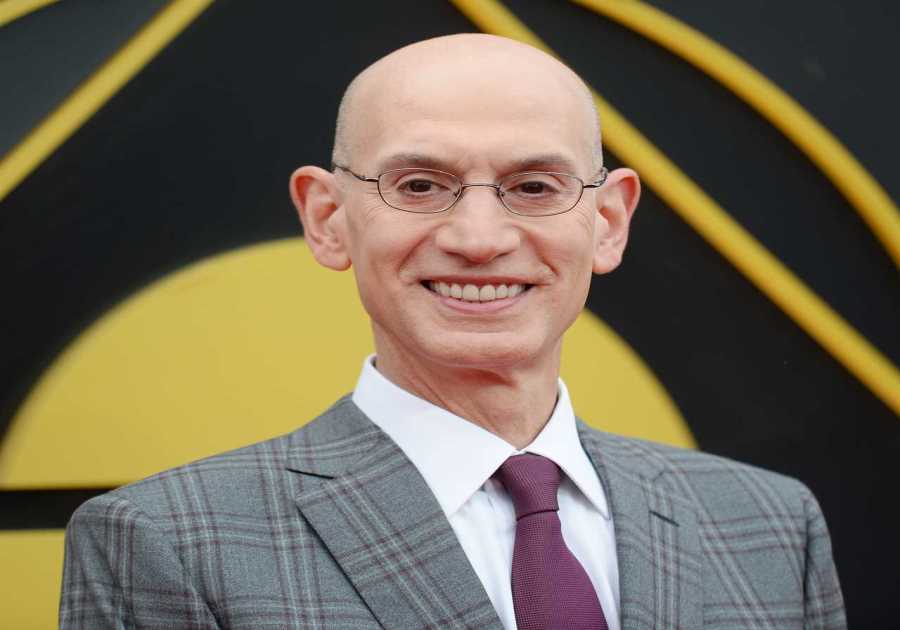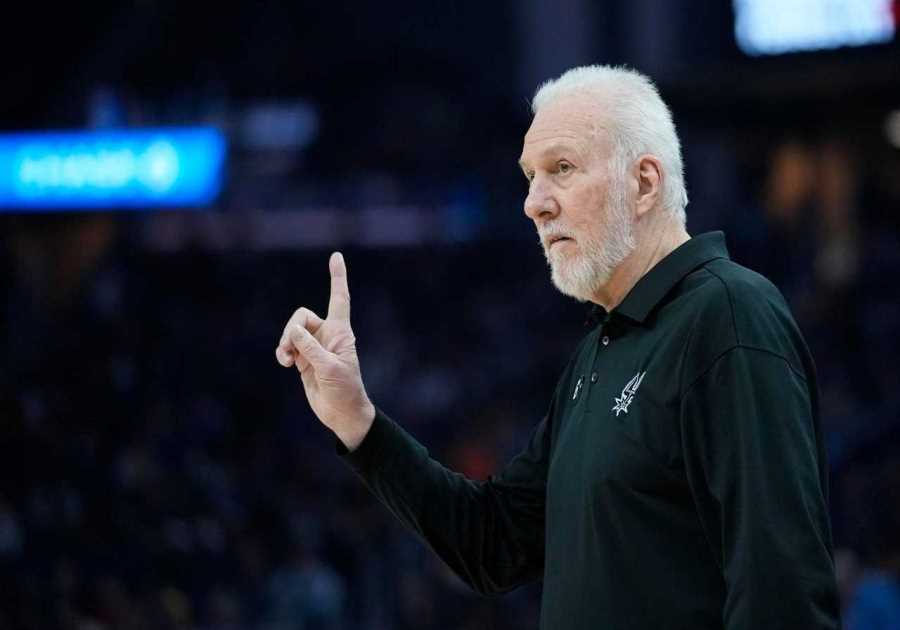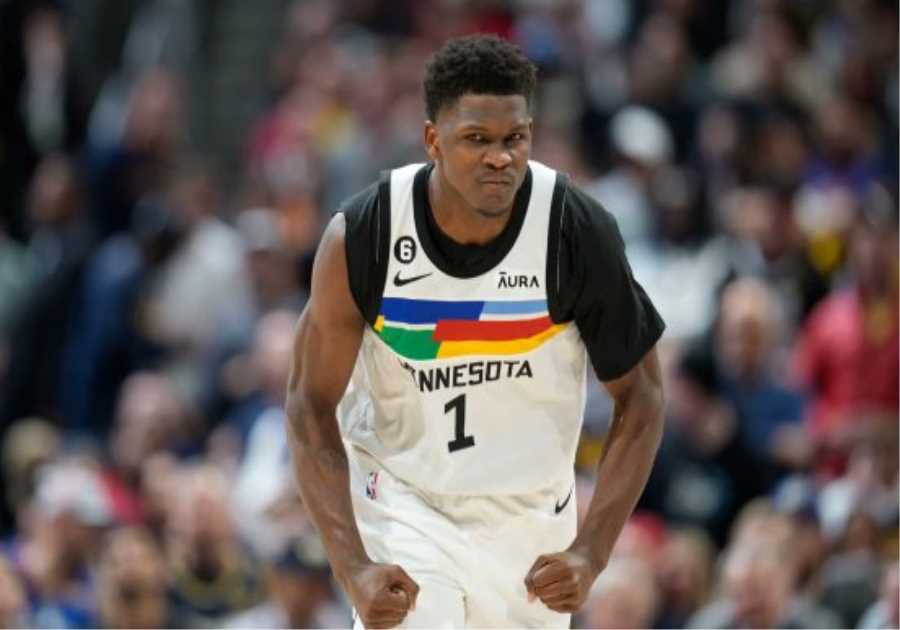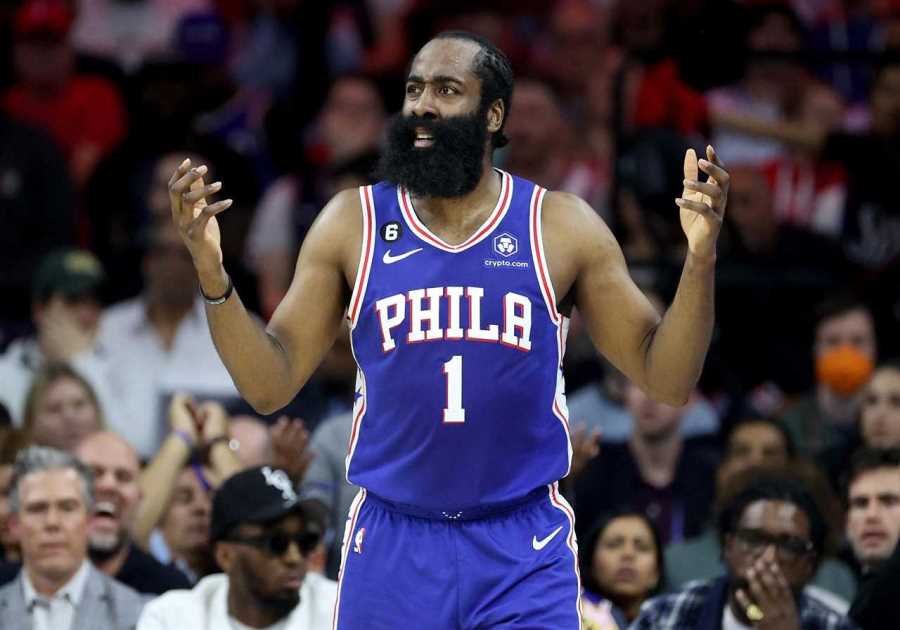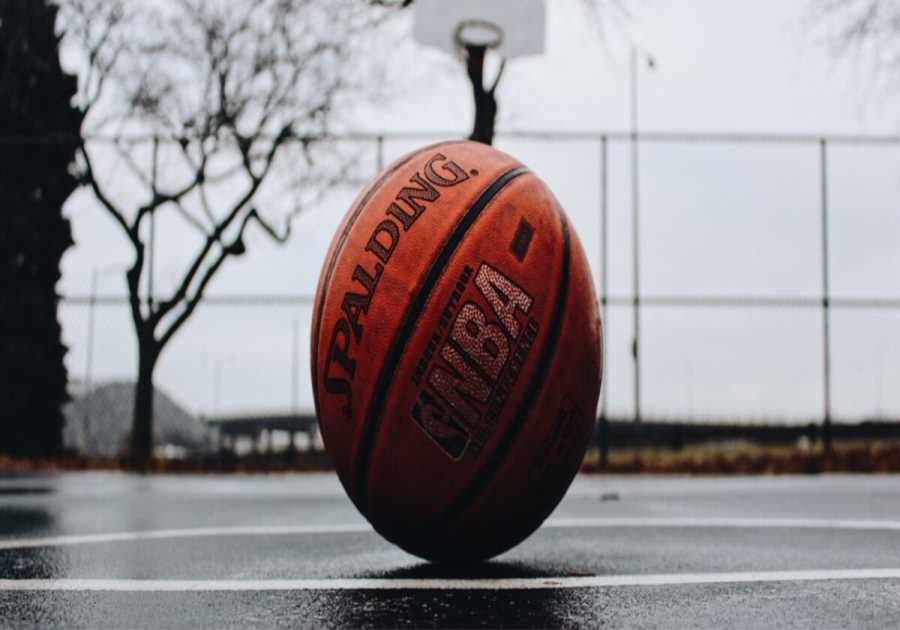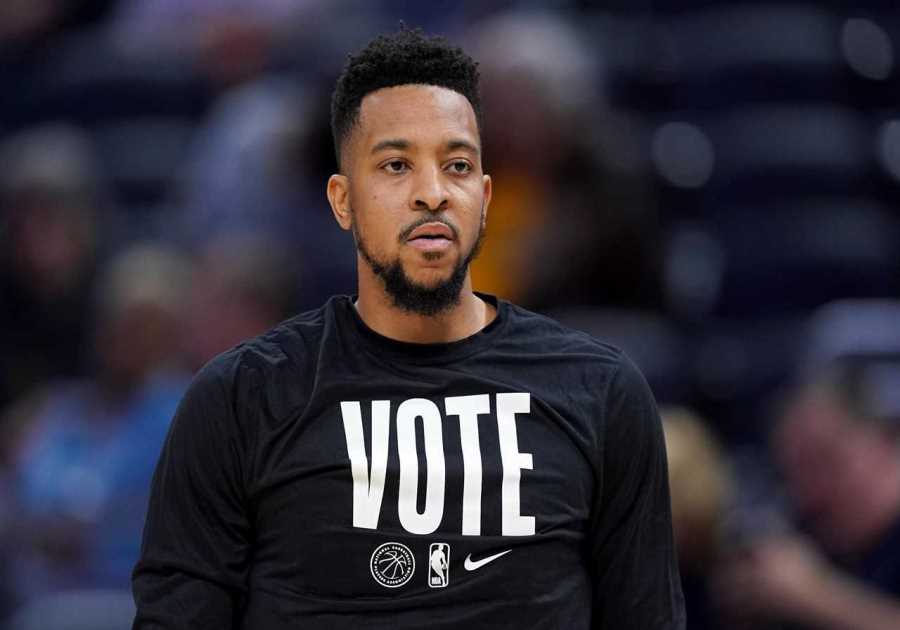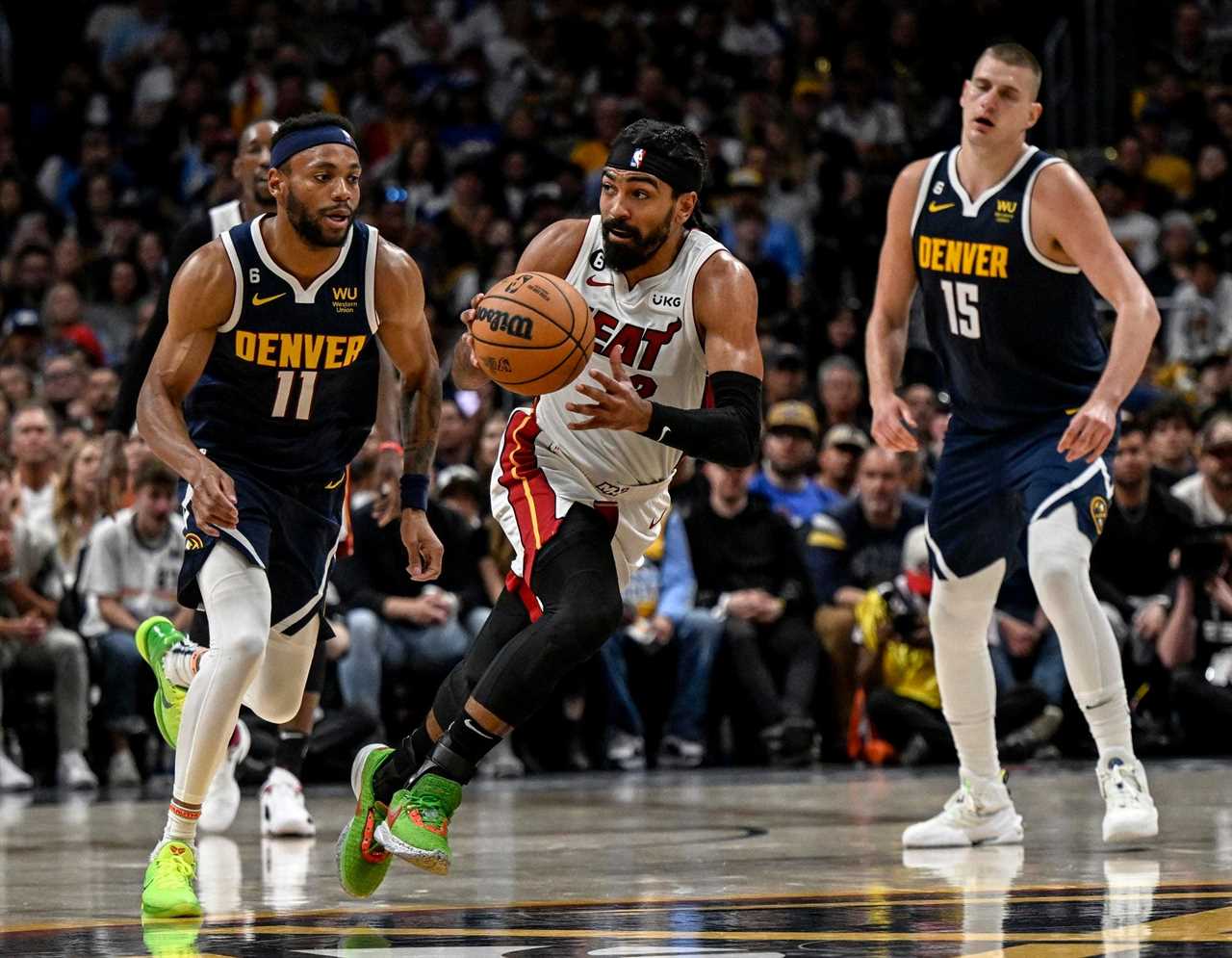
DENVER, CO - JUNE 4: Gabe Vincent (2) of the Miami Heat runs in transition as Bruce Brown (11) of ... [+] the Denver Nuggets defends in the second quarter during Game 2 of the NBA Finals at Ball Arena in Denver on Sunday, June 4, 2023. (Photo by AAron Ontiveroz/The Denver Post)
Denver Post via Getty ImagesThe NBA playoffs come at a perfect time for a handful of free agents every year. It's the final chance for players to make an impression on scouts and front offices around the league, and some seize that opportunity en route to a massive offseason payday.
Golden State Warriors forward Draymond Green popularized the notion of a "16-game player"—someone whose game is cut out for playoff basketball, not just the regular season. Teams are often far more willing to pay top dollar for players who've proved capable of contributing to deep postseason runs.
Plenty of stars showed up huge during the 2023 playoffs, including Finals MVP Nikola Jokic, Miami Heat forward Jimmy Butler and Boston Celtics forward Jayson Tatum. Jokic's Denver Nuggets and Butler's Heat might not have made it to the Finals had their supporting casts not come through with clutch performances throughout their playoff runs, though.
Both teams are in danger of losing key contributors to their respective squads this offseason, but they aren't the only ones. A pair of Los Angeles Lakers trade-deadline acquisitions acquitted themselves well in their new city, as did a New York Knicks swingman who quickly became one of his head coach's favorites.
Free agency is unpredictable, especially with a new collective bargaining agreement taking effect this offseason. Depending on how teams react to the new financial environment, some of the following players might be forced to settle for less than they might hope. But all six played well enough in the playoffs to justify a hefty payday this offseason.
Gabe Vincent, PG/SG, Miami Heat
After an underwhelming regular season, the Heat rode seemingly unsustainable hot shooting on their surprise run to the NBA Finals. Gabe Vincent was one of the primary contributors to that.
Vincent shot only 40.2% overall and 33.4% from deep across 68 regular-season appearances (34 starts), but his three-point accuracy soared in the playoffs. He shot 42.4% overall and drilled four triples in three separate outings during Miami's first-round upset of the top-seeded Milwaukee Bucks. He was somehow even better against the Boston Celtics in the Eastern Conference Finals.
Vincent missed Game 5 of the conference finals with an ankle injury, but he otherwise averaged 15.8 points on 48.5% shooting and 2.7 made triples per game throughout that series. He had a playoff career-high 29 points on 11-of-14 shooting (6-of-9 from deep) in Miami's blowout Game 3 victory that staked the Heat to a 3-0 series lead.
The 6'3" sparkplug stayed hot during Games 1 and 2 of the NBA Finals, scoring a combined 42 points on 15-of-26 shooting with nine made triples and eight assists against the Nuggets. However, he had three straight single-digit outings from there while shooting a horrific 6-of-29 overall and 1-of-14 from deep.
Vincent, one of nine undrafted free agents on Miami's Finals roster, is now headed into unrestricted free agency. Fresh off a two-year, $3.5 million contract, he's likely looking at an eight-figure annual salary on his new deal.
Max Strus, SF, Miami Heat
Vincent isn't the only undrafted free agent who impressed during the Heat's run to the Finals. Although Max Strus mostly had a Finals to forget, he was critical for a stretch earlier in the playoffs.
During the Heat's second-round victory over the New York Knicks, Strus averaged 14.7 points on 47.8% shooting, 3.5 rebounds, 2.8 triples and 1.5 assists in 29.2 minutes per game while starting all six games. He kept it up over the first three games of the Eastern Conference Finals against the Celtics (12.0 points on 48.0% shooting, 2.3 rebounds and 2.3 triples) before beginning to sputter from there.
After a forgettable 0-of-10 night in Game 1 of the NBA Finals, Strus came back and knocked down four first-quarter triples to stake Miami to an early lead in Game 2. Those were the only buckets he hit in that game, but that early surge helped the Heat steal a game on the road and temporarily put pressure on the Nuggets.
A front office executive told Darren Rovell of The Action Network that he could see both Vincent and Strus "signing deals in the $15 million-a-year range." However, the executive cautioned that they aren't guaranteed to have as much success outside of the Miami system.
“I’ve invested in players who had breakouts like these guys did and they turned out to be duds because they were just good in the system they were in,” the executive told Rovell. “If it doesn’t work out, you might never really know why. The teams that are going to be paying $12 to $15 million for Gabe Vincent and Max Strus are low- to mid-tier teams and they are going to be asked to do more on a consistent basis.”
Josh Hart, SG/SF, New York Knicks
Josh Hart is a textbook Tom Thibodeau player. Despite standing only 6'5", Hart averaged 7.8 rebounds this year across his stints between the Knicks and the Portland Trail Blazers, making him by far the league rebounding leader among players his height or shorter.
Hart helped fuel the Knicks' first-round upset victory over the Cleveland Cavaliers by leading their assault on the glass. He tied Julius Randle with a team-high 10 boards in Game 1 despite coming off the bench, and he almost has as many offensive rebounds (three) as the Cavaliers did as a team (four) in the closeout Game 5.
Hart averaged 10.3 rebounds per game across the Knicks' first three games against the Heat in the Eastern Conference Semifinals, but the Heat exploited him on the other end of the floor in ways the Cavaliers didn't. The 28-year-old is a mediocre, low-volume three-point shooter, so the Heat dared him to beat them from deep consistently and he couldn't make them pay. (Hart shot only 23.8% from three-point range against them.)
Hart told Turner Sports' Taylor Rooks that he'll "probably" decline his $13.0 million player option for the 2023-24 season to become an unrestricted free agent this summer. Stefan Bondy of the New York Daily News told Michael Scotto of HoopsHype that he's likely to return to the Knicks on a four-year deal worth between $70-75 million.
Hart's exploitability as a three-point shooter might keep his next contract from going into the stratosphere, but what he did in that Cleveland series should earn him a pretty penny.
Rui Hachimura, PF, L.A. Lakers
Rui Hachimura was the first of multiple acquisitions that the Los Angeles Lakers made ahead of this year's trade deadline. He might have been the most impactful during their run to the Western Conference Finals.
After arriving in L.A., Hachimura averaged only 9.6 points on 48.5% shooting and 4.7 rebounds in 22.4 minutes per game in 33 regular-season appearances with the Lakers. His inconsistent game-to-game output made it impossible to predict what he’d wind up doing in the playoffs.
During the Lakers' first three games against the Memphis Grizzlies in the first round, Hachimura went off for 21.7 points on 66.7% shooting and 5.3 rebounds in 28.0 minutes per night. He shot 9-of-12 from three-point range over that stretch, helping the Lakers wrestle away home-court advantage twice.
Hachimura was far less impactful during the Lakers' second-round victory over the Golden State Warriors, but he played a critical role throughout the Western Conference Finals against the eventual champion Nuggets. Over the first three games of that series, he averaged 17.0 points on 63.6% shooting in 30.7 minutes per contest off the bench.
Hachimura's three-point shooting percentage in the playoffs (48.7%) is likely unsustainable given his career regular-season mark (34.7%). However, he did shoot 44.7% from deep (on only 2.9 attempts per game) during his final full season with the Washington Wizards in 2021-22. He's an ideal fit on a team that needs three-and-D role players alongside LeBron James and Anthony Davis.
If the Lakers decide to make a huge splash in free agency, it might cost them Hachimura, who is a restricted free agent. Otherwise, they figure to retain him on a deal with an average annual salary approaching $20 million (if not higher).
Austin Reaves, SG, L.A. Lakers
Unlike Hachimura, Reaves was on the Lakers all season. However, he didn't find his groove until those midseason trades unlocked him as a consistent scoring threat both off the bench and in the starting lineup.
Over the final 20 games of the regular season (10 of which he started), Reaves averaged 18.1 points on 56.5% shooting, 5.6 assists, 3.2 rebounds and 1.5 made threes in 31.3 minutes per outing. He carried that strong play over to the postseason, where he started all 16 games and averaged 16.9 points on 46.4% shooting, 4.6 assists, 4.4 rebounds and 2.4 made threes in 36.2 minutes per game.
Reaves had four straight 20-point outings between Game 6 against the Warriors and Game 3 against the Nuggets, which proved he's capable of making a huge impact against championship-caliber teams in the playoffs. Although he's finishing only his second NBA season, the 25-year-old is far more mature than a typical player with his level of experience.
That may be his biggest obstacle in free agency. Because he's a restricted free agent with only two seasons under his belt, he'll be subject to the Arenas provision, which limits how much money outside teams can offer him. They can't begin with a starting salary higher than the $12.2 million non-taxpayer mid-level exception, although their offer sheets can jump to a max salary in the third and fourth years.
The Lakers can match any offer sheet Reaves signs using their Early Bird rights on him, and by all indications, they plan to do just that. But after signing a two-year, $2.5 million contract in September 2021, he could be headed for upward of a nine-figure deal this summer.
Bruce Brown Jr., SG/SF, Denver Nuggets
Back in December, I tabbed the Denver Nuggets' acquisition of Bruce Brown Jr. as one of the best under-the-radar moves of the offseason. It's not so under-the-radar now.
The Nuggets landed Brown on a two-year, $13.3 million contract with a second-year player option via the taxpayer mid-level exception. He later told Jake Fischer of Yahoo Sports that "nobody really wanted me" last offseason "because they didn't know if I could be a guard or not" after he played a hybrid small-ball 5 role with the Brooklyn Nets.
The Nuggets' gamble on Brown paid off, as he averaged 12.0 points on 51.1% shooting, 4.0 rebounds, 1.9 assists, 1.1 steals, 0.9 triples and 0.5 blocks in only 26.5 minutes per game off the bench en route to this year's title. Without his 21 points on 8-of-11 shooting in Game 4 against Miami, the Nuggets could have been heading back to Denver tied 2-2 in the series.
If Brown declines his $6.8 million player option as expected, the Nuggets can't offer him much of a raise since they only have non-Bird rights on him. They can give him a starting salary no higher than $7.8 million on a new deal this offseason, while teams with salary-cap space could come flying in with offers worth double that.
Much like Bobby Portis did with the Milwaukee Bucks after their championship run in 2021, Brown seems inclined to pass up chasing the money for another chance at a title.
“I want to stay,” Brown told Mike Singer of the Denver Post after the Nuggets' championship-clinching victory in Game 5. “Look at us. Celebrating the Finals, winning the Finals. This is what you come to the NBA for, to win at the highest level.”
If Brown does stay in Denver, expect him to sign another 1+1 deal so he can maximize his earnings next summer. At that point, the Nuggets will have Early Bird Rights on him, which would allow them to offer a starting salary worth 175% of his previous salary or 105% of the average salary from the previous season (whichever is greater). A four-year extension offer based on a $7.8 million salary in 2023-24 could be north of $60 million.
Unless otherwise noted, all stats via NBA.com, PBPStats, Cleaning the Glass or Basketball Reference. All salary information via Spotrac or RealGM. All odds via FanDuel Sportsbook.
Bryan Toporek, Senior Contributor
https://www.forbes.com/sites/bryantoporek/2023/06/15/6-players-who-earned-themselves-more-money-in-the-2023-nba-playoffs/
By: Bryan Toporek, Senior Contributor
Title: 6 Players Who Earned Themselves More Money In The 2023 NBA Playoffs
Sourced From: www.forbes.com/sites/bryantoporek/2023/06/15/6-players-who-earned-themselves-more-money-in-the-2023-nba-playoffs/
Published Date: 06-15-2023
Frequently Asked Questions
Which NBA star is currently the most dominant scorer?
Because different players have their own styles of play, the answer to this question can be subjective. Kevin Durant (LeBron James), Stephen Curry, James Harden, and Stephen Curry are the top choices for most dominant scorers in the NBA.
Kevin Durant has more to offer than just being a shooting superstar. This player is an elite player, having won two NBA Championships as well 2 Finals MVPs. He also holds the regular season MVP title.
Which NBA player has blocked the most shots in a single season?
Mark Eaton set the all-time records for blocks (456) and blocks per game (5.56) in a season during 1984-85. Eaton's all-time total that year was the greatest single-season number in NBA history.
Hakeem Olajuwon currently holds the NBA record for most career blocks, with 3,830. Olajuwon had an average of 21.8 points and 11.1 boards over his 18-year playing career, which included 1,238 games. He also had 2.5 assists and 3.1 block per game.
What does it take for a basketball superstar to reach the top?
To truly become a professional NBA superstar, you must put in a great deal of time and effort. Being a NBA star takes hard work, physical conditioning, skills development, and years. The average player spends between three and five year in college to perfect their skills before being eligible for the draft. Once they are drafted, players must perform well in the NBA. For this to happen, you need more guidance and coaching from coaches and trainers. It takes time to become a NBA superstar. It takes dedication, commitment, and time to reach such accolades. With the right mindset and determination, however, anyone can reach their goals and become an NBA superstar!
What is a restricted agent free in NBA?
A restricted free agent in the NBA is a player who has completed their rookie contract and becomes an unrestricted free agent whose rights are still held by their previous team. The team may match an offer sheet from another team for the player. If they decide to do so, the player will remain with their former team and must honor their existing contract. This allows teams retain players who are proven valuable, but cannot afford them because of their salary caps. This type of restricted free agent can give teams valuable flexibility in building their rosters.
What is a NBA hybrid contract?
The NBA offers players a hybrid contract that allows them to pay higher salaries than they otherwise would be able to. The salary of these contracts is partially counted against the team's maximum salary and the rest is paid to the player directly as a bonus. This allows teams and players to have higher salaries, while still adhering to league salary restrictions. This gives players incentive to sign with certain teams as they could make more than they otherwise would.
Statistics
- "NBA first-round ratings drop 27 percent, 40 percent since 2017–18". (en.wikipedia.org)
- Williams would 'likely' accept a deal worth $14-15M/year; Celtics are 'unlikely' to offer such a deal (HoopsHype) (bleacherreport.com)
- Between 2012 and 2019, the league lost 40 to 45 percent of its viewership. (en.wikipedia.org)
- The 2013–14 season opened with 92 international players on the opening night rosters, representing 39 countries and over 20% of the league. (en.wikipedia.org)
- An estimated 800 million viewers watched the [105]2017–18 season. (en.wikipedia.org)
External Links
sbnation.com
twitter.com
- Tweet / Twitter
- Sam Amico on Twitter: "Timberwolves Waive PJ Dozier, CJ Elleby and AJ Lawson - Hoops Wire https://t.co/xKu1ZTuQZN" / Twitter
bleacherreport.com
- Which NBA Team Will Participate In the Victor Wembanyama Tathon?
- Recent NBA Intel: Sources expect Zach LaVine will re-sign with the Chicago Bulls
sports.yahoo.com
- Mail, Weather, Search, Politics, News, Finance, Sports & Videos
- NBA Finals game 1 sees the lowest viewing in recorded ratings history
How To
When an NBA player is injured, are they paid?
Guaranteed contracts allow NBA players to keep their money even if they are injured or unable to play. Some have even made millions of dollars without ever playing a single game. However, they may lose out on bonus payments and their contract might not be renewed. Players with non-guaranteed contracts will not usually receive any payment until they become healthy enough to return to the NBA. The NBA can provide some assistance with disability payments or a lump sum settlement for those who qualify, but there is no guarantee of pay during an injury absence. Additional assistance may be offered by the league or teams on a case-by–case basis.
Teams can also provide some assistance through the Injury Disability Plan. It depends on the individual's and team's situation. In some cases, players may be allowed to bargain with their teams for some compensation during an injury absence. The league and the team cannot guarantee payment for injuries, but players need to be aware that they can help. It is essential to keep in mind that each situation is unique and should be assessed on an individual basis. The NBA has extensive rules concerning injuries and payments in the event of injury absences. This can be helpful for players to make financial decisions or reach an agreement with teams. If you have any questions or concerns it is important to talk with a professional.

